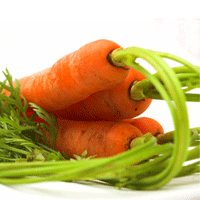Two chefs share tips on cooking local
Jeff Crump, executive chef of Ancaster, Ont.’s Landmark Group, and Chris Jess, chef and instructor at The Food School, Centre Wellington District High School, Fergus, Ont., share tips on cooking local
Ask and learn
“I sourced my suppliers by starting with one local food. In my case it was organic chickens, then I asked that farmer for other suppliers.”— Crump
Start small
“Chefs who want to start an eat-local program should simply pick one thing — dairy, chicken, bread, whatever’s available — start with that, feel good about it, be proud and then slowly add to local offerings.”— Crump
Cook food in season
“Our [school’s Café La Ruche] menu has kale, celery root, carrots, turnips, cabbage, potatoes, onions, garlic and squash all over it. It’s what’s available, so that’s what we make shine on our menu.”— Jess
Make the most of meat
“Utilizing off-cuts like pork shoulder, ground beef and lamb shanks is the best way to use local food with a budget in mind. They’re also more tasty than expensive cuts.”— Crump
Embrace the unexpected
“Incorporate local grains, legumes and heritage wheat [such as] Red Fife. Generally speaking, grains are much less expensive than meat and vegetables and, of course, they’re very healthy.”— Crump
Be creative
“Get creative and make preserving part of your menu. As far as the summer harvest is concerned, it’s really about bulk preserving and ultimately halting the addictions we have with fruit and vegetables that are out of season.”— Jess
Pay up
“It’s not about keeping costs down. We don’t charge enough for our good food as it is, and I don’t believe lowering the integrity of local food to meet the industrial food system’s edible food-like-substances level is the answer. It’s not business as usual.”— Jess
Be pragmatic
“If you’re committed and have control over your purchasing, there’s very little to stop you from getting the product you want.”— Crump
Get involved
“As trained professionals, we need to stand up for quality and start modelling a food system that won’t destroy the planet — that won’t make us all sick and ultimately tastes superior.”— Jess
Farmers’ Markets Associations – connecting chefs and farmers
B.C. Association of Farmers’ Markets
Vancouver
(604) 734-9797
Saskatchewan Farmers’ Markets
(306) 278-3265
The Farmers’ Markets Association of Manitoba Inc.
Winnipeg
(204) 485-7574
Farmers’ Markets Canada
Brighton, Ont.
(800) 387-3276
L’Association des Marchés publics du Québec
Saint-Rédempteur, Que.
(418) 998-5028
Farmers’ Markets Nova Scotia
Halifax
(902) 425-9776
Keep Reading
Farm to Fork: He Said/She Said
Farm to Fork: Highlighting the Harvest
Farm to Fork: Blueprint for Change
Farm to Fork: Reinventing the Cheese Wheel
The New Vegetarian: Chefs are Appealing to Flexitarians





















